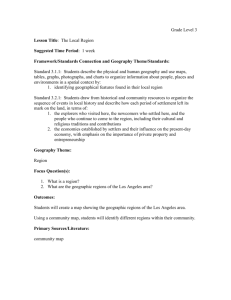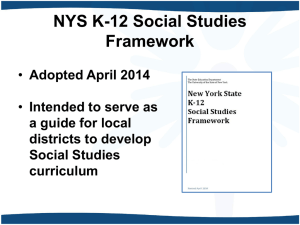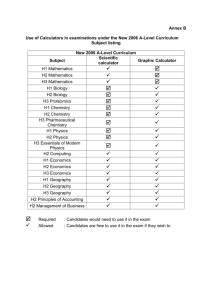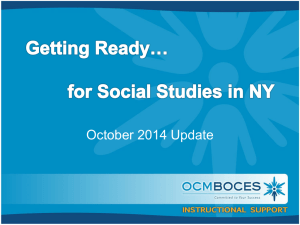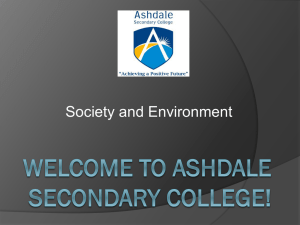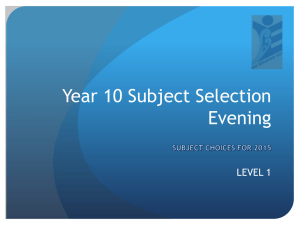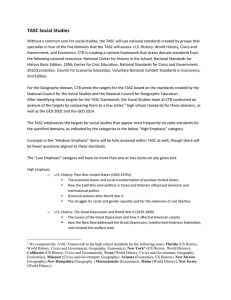Chapter 6
advertisement
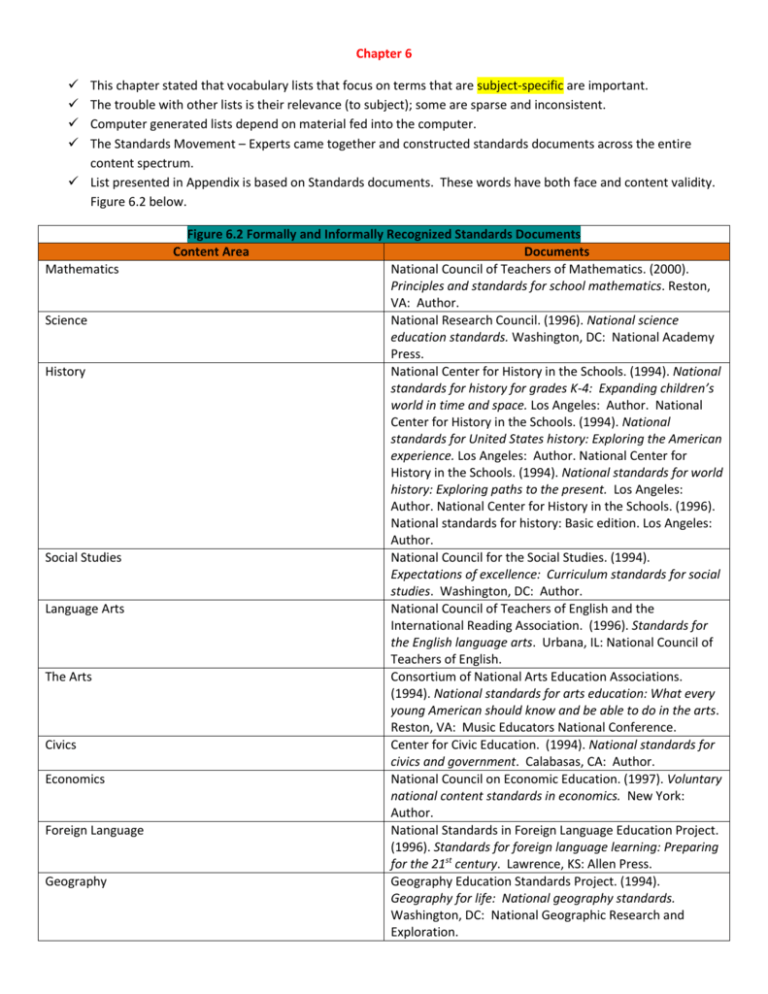
Chapter 6 This chapter stated that vocabulary lists that focus on terms that are subject-specific are important. The trouble with other lists is their relevance (to subject); some are sparse and inconsistent. Computer generated lists depend on material fed into the computer. The Standards Movement – Experts came together and constructed standards documents across the entire content spectrum. List presented in Appendix is based on Standards documents. These words have both face and content validity. Figure 6.2 below. Mathematics Science History Social Studies Language Arts The Arts Civics Economics Foreign Language Geography Figure 6.2 Formally and Informally Recognized Standards Documents Content Area Documents National Council of Teachers of Mathematics. (2000). Principles and standards for school mathematics. Reston, VA: Author. National Research Council. (1996). National science education standards. Washington, DC: National Academy Press. National Center for History in the Schools. (1994). National standards for history for grades K-4: Expanding children’s world in time and space. Los Angeles: Author. National Center for History in the Schools. (1994). National standards for United States history: Exploring the American experience. Los Angeles: Author. National Center for History in the Schools. (1994). National standards for world history: Exploring paths to the present. Los Angeles: Author. National Center for History in the Schools. (1996). National standards for history: Basic edition. Los Angeles: Author. National Council for the Social Studies. (1994). Expectations of excellence: Curriculum standards for social studies. Washington, DC: Author. National Council of Teachers of English and the International Reading Association. (1996). Standards for the English language arts. Urbana, IL: National Council of Teachers of English. Consortium of National Arts Education Associations. (1994). National standards for arts education: What every young American should know and be able to do in the arts. Reston, VA: Music Educators National Conference. Center for Civic Education. (1994). National standards for civics and government. Calabasas, CA: Author. National Council on Economic Education. (1997). Voluntary national content standards in economics. New York: Author. National Standards in Foreign Language Education Project. (1996). Standards for foreign language learning: Preparing for the 21st century. Lawrence, KS: Allen Press. Geography Education Standards Project. (1994). Geography for life: National geography standards. Washington, DC: National Geographic Research and Exploration. Content Area Documents Joint Committee on National Health Education Standards. (1995). Moving into the future: National health education standards: Achieving health literacy. Reston, VA: Association for the Advancement of Health Education. National Association for Sport and Physical Education. (1995). Moving into the future: National standards for physical education: A guide to content and assessment. St. Louis: Mosby. International Technology Education Association. (2000). Standards for technology literacy: Content for the study of technology. Reston, VA: Author. Health Physical Education Technology Figure 6.3 shows organization of terms. (See below) Subject Area Mathematics Science English Language Arts History General History US History World History Geography Civics Economics Health Physical Education The Arts Arts General Dance Music Theater Visual Arts Technology TOTALS Figure 6.3 Number of Terms Per Level in Each Subject Area Level 1 (K-2) Level 2 (3-5) Level 3 (6-8) Level 4 (9-12) 80 190 201 214 100 166 225 282 83 245 247 223 685 773 798 162 0 560 154 319 123 270 148 1311 425 0 89 45 29 60 57 245 212 145 68 68 100 301 258 210 89 75 50 297 300 213 155 77 34 843 859 613 341 280 241 14 18 14 5 3 23 782 36 24 83 14 41 47 2398 30 42 67 35 24 56 2352 9 37 32 13 8 79 2391 89 121 196 67 76 205 7923 Two Items of Interest 1. Highly uneven distribution of terms across content areas (History) 2. Large number of terms at Level 2 (grades 3 – 5) Totals
